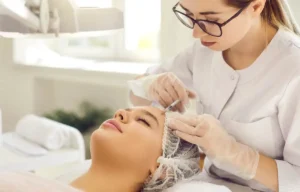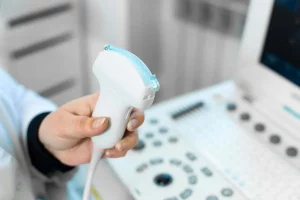
Aesthetic nursing is a specialized field that requires an extensive range of skills, knowledge, and expertise. It involves various cosmetic and non-surgical procedures that aim to improve the appearance of an individual’s face and body. Aesthetic nurses collaborate with dermatologists, plastic surgeons, and other healthcare professionals to provide exceptional patient care and outcomes.
To become an aesthetic nurse, you must acquire several essential skills for success. This blog will discuss some skills aesthetic nurses should possess to excel in their careers.
What Skills Do You Need to be an Aesthetic Nurse?
1. Communication skills
Communication skills are essential for all healthcare professionals, including aesthetic nurses. Aesthetic nurses should be able to communicate effectively with their patients to understand their needs and expectations. They should be able to explain the various procedures, their benefits, and potential risks in simple terms that the patient can understand. Aesthetic nurses must also be good listeners to address any concerns or queries that the patient may have.
2. Technical skills
Aesthetic nurses should have strong technical skills to perform various cosmetic procedures. They should be trained in handling and using specialized equipment, such as lasers, injectables, and other medical devices. They should also understand the anatomy and physiology of the face and body to ensure they can perform procedures safely and effectively.
3. Attention to detail
Attention to detail is a necessary skill for aesthetic nurses. They must be detail-oriented to perform procedures accurately and achieve the desired results. Aesthetic nurses must have an eye for symmetry, balance, and proportion to create a natural-looking outcome that enhances the patient’s appearance.
4. Patient care skills
Aesthetic nurses should be compassionate and caring toward their patients. They should create a comfortable and safe environment for the patient and be able to manage their pain and anxiety effectively. Aesthetic nurses should also be able to provide pre-and post-procedure care to ensure that the patient recovers quickly and comfortably.
5. Time management skills
Aesthetic nurses must manage their time effectively to provide timely patient care. They should be able to schedule appointments, manage their workload, and prioritize their tasks efficiently to ensure they can provide high-quality patient care while maintaining their work-life balance.
6. Business skills
Aesthetic nursing is a business, so aesthetic nurses should have strong business skills. They should be able to manage their finances, market their services, and maintain good relationships with their patients to ensure their business is booming.
7. Continuous learning
Aesthetic nurses should be committed to continuous learning and professional development. They should keep up-to-date with the latest trends, techniques, and technologies in the aesthetic industry to ensure they can provide their patients with the best possible care. Aesthetic nurses should also be willing to participate in training and education programs to enhance their skills and knowledge.
8. Ethics and professionalism
Aesthetic nurses should adhere to high ethical and professional standards. They should maintain patient confidentiality, provide safe and effective care, and follow all legal and regulatory requirements. Aesthetic nurses should also respect patients’ autonomy, cultural beliefs, and values and care sensitively for their needs.
9. Interpersonal skills
Aesthetic nurses should have strong interpersonal skills to work effectively with other healthcare professionals, including dermatologists, plastic surgeons, and other healthcare team members. They should be able to communicate effectively, collaborate with others, and resolve conflicts professionally and respectfully.
10. Leadership skills
Aesthetic nurses should have strong leadership skills to lead and manage their teams effectively. They must be able to motivate and uplift their colleagues, delegate tasks, and provide constructive feedback to ensure that their team is working towards achieving common goals.
Upskill through Training Courses for Aesthetic Nursing
Being an aesthetic nurse requires comprehensive knowledge and skills in various cosmetic procedures. Aesthetic nursing training courses are designed to equip nurses with the necessary skills and expertise to provide exceptional care to their patients. These courses cover various topics. Some of the issues include the following:
1. Introduction to Aesthetic Nursing
The introductory module of an aesthetic nursing training course provides the following:
- An overview of aesthetic nursing.
- The role of an aesthetic nurse.
- The legal and ethical considerations of the practice.
The module also covers the history of cosmetic treatments, the importance of patient safety, and the essential skills and knowledge required for a successful career in aesthetic nursing.
2. Anatomy and Physiology
Aesthetic nursing training courses cover the anatomy and physiology of the face and body, including the musculoskeletal system, nerves, and blood vessels. The module provides an in-depth understanding of facial anatomy and how it relates to cosmetic treatments, such as injectables and fillers.
3. Patient Assessment and Consultation
Patient assessment and consultation are critical components of aesthetic nursing. The module covers the essential skills required to assess the patient’s needs and expectations, conduct a comprehensive consultation, and develop a treatment plan that meets the patient’s aesthetic goals. The module also covers the importance of informed consent, patient expectations, and identifying and managing potential complications.
4. Injectables and Fillers
Injectables and fillers are some of the most popular cosmetic treatments. The module covers various injectables and fillers, including their properties, indications, contraindications, and potential complications. The module also provides hands-on training in administering injectables and fillers, including injection techniques, product selection, and dosage.
5. Laser and Light-Based Treatments
Laser and light-based treatments effectively treat various skin conditions, such as acne, rosacea, and hyperpigmentation. The module covers the different types of lasers and light-based devices, their properties, indications, contraindications, and potential complications. The module also provides hands-on training in using laser and light-based devices safely and effectively.
6. Post-Treatment Care
Post-treatment care is crucial in ensuring patient safety and satisfaction. The module covers the essential skills required to provide post-treatment care, including pain management, wound care, and managing potential complications. The module also covers the importance of patient education, follow-up care, and the role of the aesthetic nurse in promoting patient satisfaction and retention.
Conclusion
In conclusion, becoming an aesthetic nurse requires a combination of technical, interpersonal, communication, patient care, time management, business, continuous learning, ethics, professionalism, attention to detail, and leadership skills. Aesthetic nursing is a specialized field that offers opportunities for growth and development. With the right skills and understanding, you can have a fulfilling and rewarding career in this field.
If you want a comprehensive aesthetic nursing training course, consider enrolling in Glo Academy. Glo Academy offers courses in various cosmetic procedures, including injectables, laser and light-based treatments, and skincare. With Glo Academy, you can learn from experienced aesthetic nurses, dermatologists, and plastic surgeons and gain practical skills and knowledge in a convenient and flexible setting. Whether you’re new to aesthetic nursing or looking to enhance your skills, Glo Academy can help you acquire your career goals in this exciting field.





